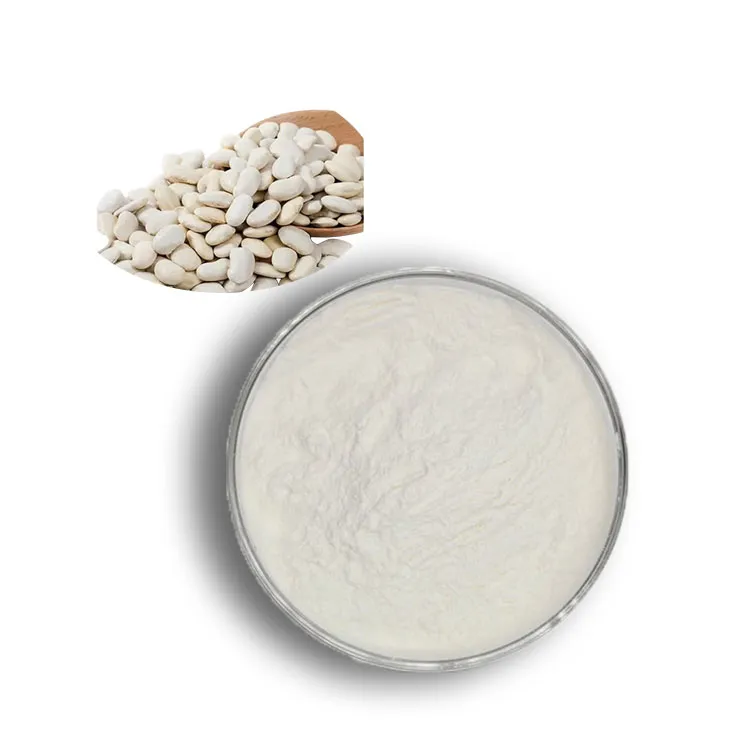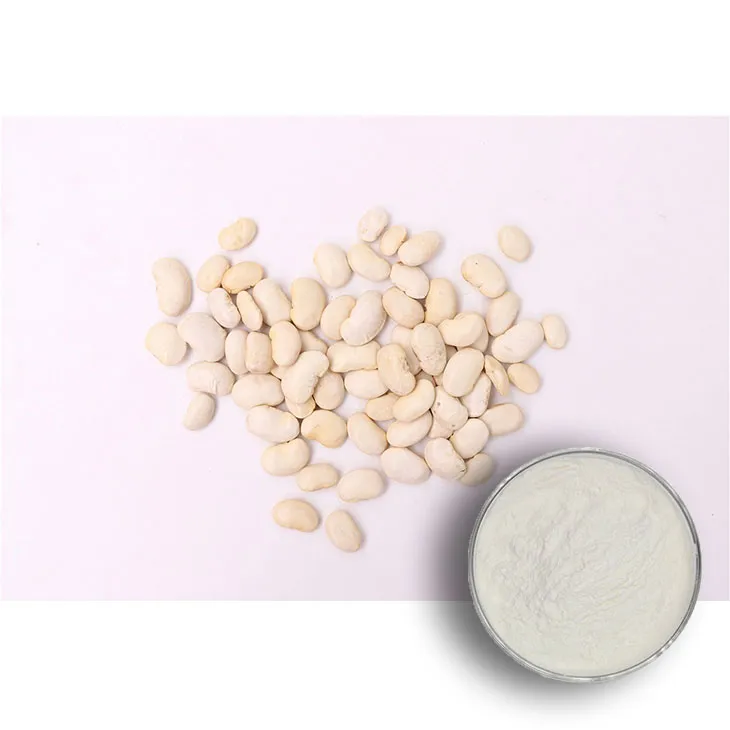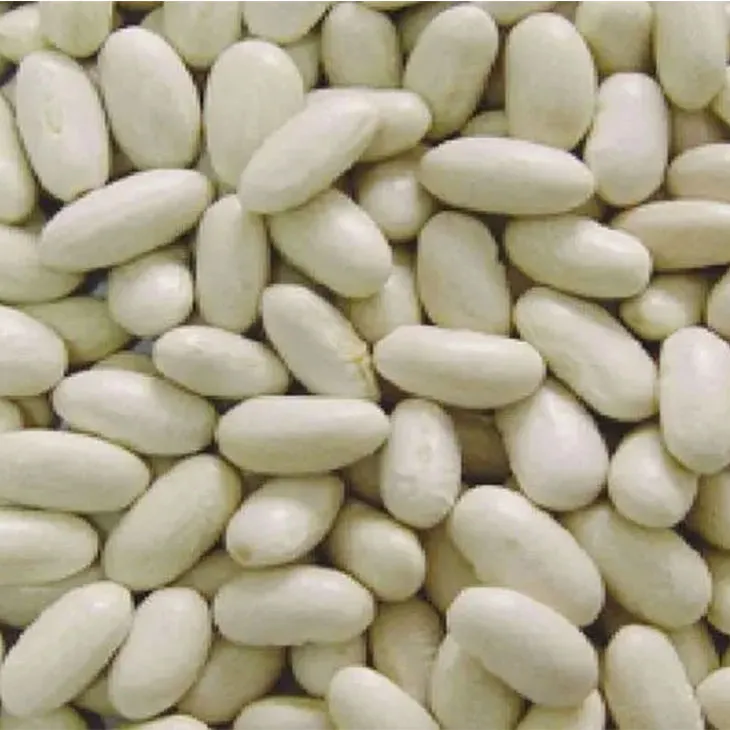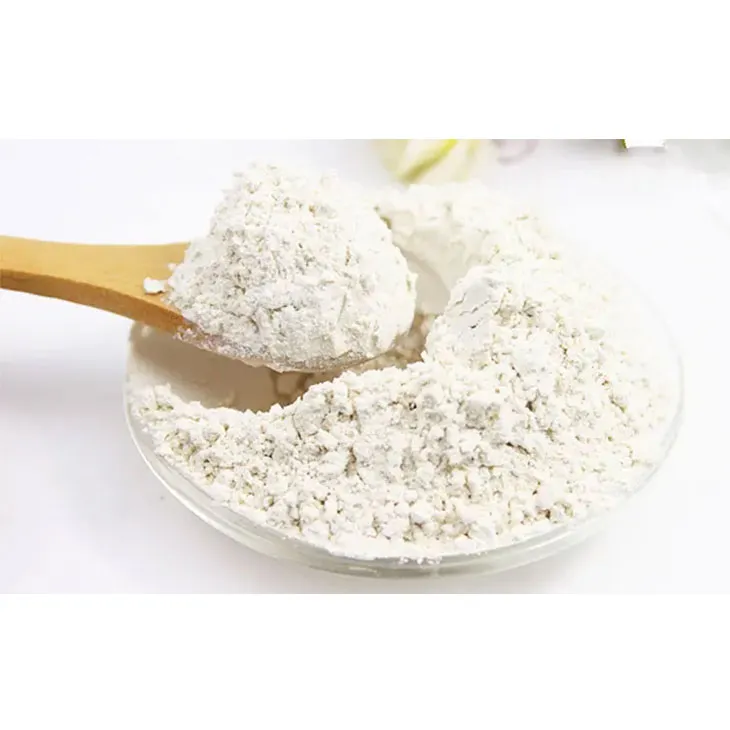- 0086-571-85302990
- sales@greenskybio.com
Is kidney bean extract beneficial for diabetes? Are these all safe and suitable for diabetic patients?
2024-11-11

1. Introduction
Diabetes has become a global health concern, with a growing number of people being diagnosed each year. As a result, there is an increasing interest in natural remedies and supplements that may help manage the condition. Kidney Bean Extract is one such substance that has been the subject of much research and discussion. In this article, we will explore whether Kidney Bean Extract is beneficial for diabetes and whether it is safe for diabetic patients.

2. What is Kidney Bean Extract?
Kidney bean extract is derived from the common kidney bean (Phaseolus vulgaris). It contains a variety of bioactive compounds, including lectins, polyphenols, and protease inhibitors. These compounds are thought to be responsible for its potential health effects.

3. The Link between Kidney Bean Extract and Diabetes
3.1 Blood Glucose Regulation
One of the main areas of interest regarding kidney bean extract and diabetes is its potential effect on blood glucose levels. Some studies have suggested that the lectins in kidney bean extract may help regulate blood sugar by interfering with the digestion and absorption of carbohydrates. For example, they may bind to the surface of the small intestine and prevent the breakdown of complex carbohydrates into simple sugars, thereby reducing the amount of glucose that enters the bloodstream.
However, it is important to note that not all studies have shown consistent results. Some research has found little or no effect on blood glucose levels, while others have reported conflicting findings depending on the dosage, form of the extract, and the characteristics of the study participants.
3.2 Insulin Sensitivity
Another aspect that has been investigated is the impact of kidney bean extract on insulin sensitivity. Insulin is a hormone that plays a crucial role in regulating blood glucose levels. In people with type 2 diabetes, the body often becomes resistant to insulin, meaning that cells do not respond properly to the hormone. Some preliminary studies have suggested that certain compounds in kidney bean extract may improve insulin sensitivity, potentially helping the body to use insulin more effectively.
Nevertheless, more research is needed to fully understand this relationship. The mechanisms by which kidney bean extract may influence insulin sensitivity are not yet fully understood, and further studies are required to confirm these initial findings.

4. Scientific Studies on Kidney Bean Extract and Diabetes
Several scientific studies have been conducted to evaluate the effect of kidney bean extract on diabetes. A number of in vitro and in vivo studies have provided some evidence of its potential benefits.
4.1 In Vitro Studies
In in vitro studies, which are typically conducted in a laboratory setting using cell cultures or isolated tissues, kidney bean extract has been shown to have various effects on glucose metabolism. For example, some experiments have demonstrated that the extract can inhibit certain enzymes involved in carbohydrate digestion, such as alpha - amylase and alpha - glucosidase. By inhibiting these enzymes, the extract may reduce the rate at which carbohydrates are broken down into glucose, which could potentially lead to lower blood glucose levels.
4.2 In Vivo Studies
In in vivo studies, which involve living organisms such as animals or humans, the results have been more mixed. Some animal studies have shown that kidney bean extract can improve blood glucose control and insulin sensitivity in diabetic models. However, when it comes to human studies, the evidence is less conclusive.
One small - scale human study found that a specific formulation of kidney bean extract was associated with a modest reduction in post - meal blood glucose levels in people with type 2 diabetes. However, larger and more comprehensive studies are needed to confirm these findings and to determine the optimal dosage and long - term safety of using kidney bean extract for diabetes management.

5. Practical Experiences and Anecdotal Evidence
In addition to scientific studies, there are also practical experiences and anecdotal evidence from people who have used kidney bean extract for diabetes. Some individuals report that they have noticed a reduction in their blood glucose levels or an improvement in their overall diabetes management after taking kidney bean extract supplements.
However, it is important to approach anecdotal evidence with caution. Personal experiences can be influenced by a variety of factors, such as diet, lifestyle, and other medications or supplements being taken simultaneously. Moreover, what works for one person may not work for another, and self - reporting may not always be accurate or reliable.
6. Safety Considerations for Diabetic Patients
6.1 Potential Side Effects
While kidney bean extract is generally considered safe for most people when taken in appropriate doses, there are some potential side effects that diabetic patients should be aware of. One concern is the possible interference with nutrient absorption. Since the lectins in kidney bean extract can bind to the intestinal lining, there is a risk that they may also bind to essential nutrients such as vitamins and minerals, preventing their absorption. This could potentially lead to nutrient deficiencies over time.
Another potential side effect is gastrointestinal discomfort. Some people may experience symptoms such as bloating, gas, or diarrhea after taking kidney bean extract. These symptoms are more likely to occur at higher doses or in individuals with sensitive digestive systems.
6.2 Interactions with Medications
Diabetic patients often take medications to manage their blood glucose levels, and there is a possibility of interactions between kidney bean extract and these medications. For example, if kidney bean extract has a significant effect on blood glucose, it could potentially interact with diabetes medications such as insulin or oral hypoglycemic agents, leading to hypoglycemia (low blood sugar). Therefore, it is crucial for diabetic patients to consult their healthcare provider before starting to take kidney bean extract supplements, especially if they are already on diabetes medications.
7. Risk Assessments and Precautions
Before considering using kidney bean extract for diabetes, it is important to conduct a risk assessment. Diabetic patients should take into account their individual health status, including any existing medical conditions, medications they are taking, and their overall diet and lifestyle.
If a diabetic patient decides to try kidney bean extract, they should start with a low dose and gradually increase it while closely monitoring their blood glucose levels and any potential side effects. It is also advisable to choose a high - quality supplement from a reputable manufacturer to ensure purity and potency.
8. Conclusion
In conclusion, the relationship between kidney bean extract and diabetes is complex and not yet fully understood. While some scientific studies and anecdotal evidence suggest that it may have potential benefits for blood glucose regulation and insulin sensitivity, more research is needed to confirm these effects. Diabetic patients should also be aware of the potential safety concerns, including side effects and interactions with medications. Before using kidney bean extract, it is essential to consult a healthcare provider to ensure that it is a safe and appropriate option for individual diabetes management.
FAQ:
Q1: What is kidney bean extract?
Kidney bean extract is derived from kidney beans. It often contains various bioactive components such as certain proteins, fiber, and potentially some phytochemicals. These components may have different effects on the body's physiological processes.
Q2: How could kidney bean extract potentially benefit diabetes?
Some studies suggest that kidney bean extract may help with diabetes in a few ways. The fiber in it might slow down the digestion and absorption of carbohydrates, which can lead to a more gradual rise in blood sugar levels. Also, certain proteins or phytochemicals in the extract could potentially influence insulin sensitivity, though more research is needed to fully understand these mechanisms.
Q3: Are there any risks associated with kidney bean extract for diabetic patients?
Yes, there can be risks. Some people may be allergic to kidney bean extract, which can cause allergic reactions ranging from mild skin rashes to more severe respiratory or digestive problems. Additionally, if the extract is not properly processed or sourced, it may contain contaminants that could be harmful. Also, excessive consumption might disrupt normal digestion or nutrient absorption.
Q4: How much kidney bean extract is safe for diabetic patients?
There is no one - size - fits - fits - all answer. It depends on various factors such as the individual's overall health, other medications they are taking, and their specific type of diabetes. In general, it is best to start with a very small amount and gradually increase while closely monitoring blood sugar levels and any potential side effects. It is also advisable to consult a healthcare provider before starting any supplementation.
Q5: Does scientific research fully support the use of kidney bean extract for diabetes?
Currently, scientific research on the use of kidney bean extract for diabetes is still limited. While some initial studies show promising results regarding its potential effects on blood sugar control and insulin sensitivity, more comprehensive and long - term studies are required. So far, the evidence is not conclusive enough to firmly recommend it as a standard treatment for diabetes.
Related literature
- The Potential Role of Kidney Bean Extract in Diabetes Management: A Review"
- "Kidney Bean Extract and Blood Sugar Regulation: Current Research Findings"
- ▶ Hesperidin
- ▶ Citrus Bioflavonoids
- ▶ Plant Extract
- ▶ lycopene
- ▶ Diosmin
- ▶ Grape seed extract
- ▶ Sea buckthorn Juice Powder
- ▶ Fruit Juice Powder
- ▶ Hops Extract
- ▶ Artichoke Extract
- ▶ Mushroom extract
- ▶ Astaxanthin
- ▶ Green Tea Extract
- ▶ Curcumin
- ▶ Horse Chestnut Extract
- ▶ Other Product
- ▶ Boswellia Serrata Extract
- ▶ Resveratrol
- ▶ Marigold Extract
- ▶ Grape Leaf Extract
- ▶ New Product
- ▶ Aminolevulinic acid
- ▶ Cranberry Extract
- ▶ Red Yeast Rice
- ▶ Red Wine Extract
-
Plantain extract
2024-11-11
-
Bitter Melon Extract
2024-11-11
-
Chasteberry Extract
2024-11-11
-
Marigold Extract
2024-11-11
-
Scutellaria Extract
2024-11-11
-
Buckthorn bark extract
2024-11-11
-
Fenugreek Extract Powder
2024-11-11
-
Chaste Berry Extract
2024-11-11
-
Red Wine Extract
2024-11-11
-
Eyebright Extract
2024-11-11





















